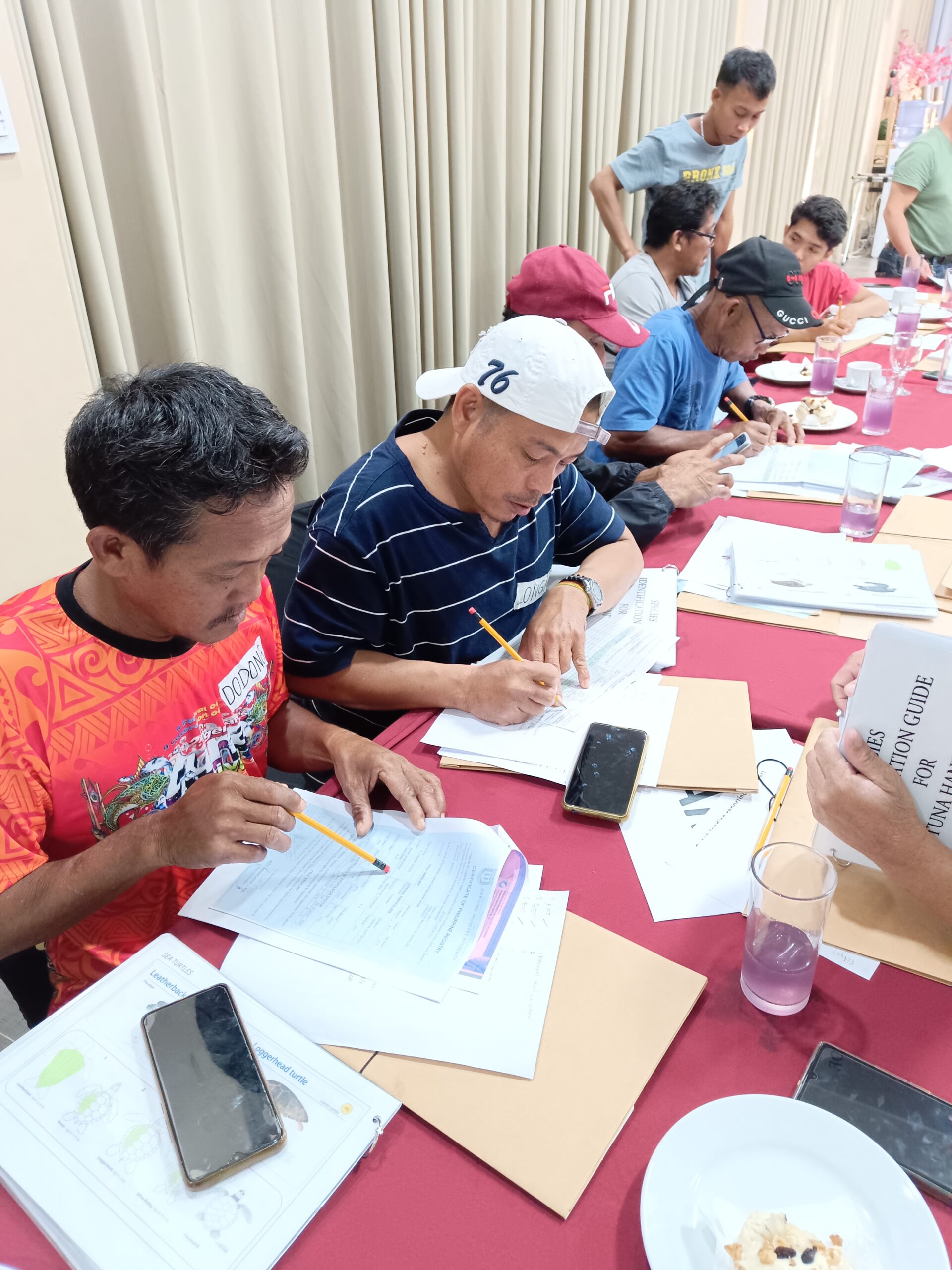Tuna populations have declined in many parts of the world due to overfishing, and accurate catch data is essential for monitoring and managing these stocks.
The SOCSKSARGEN Federation of Fishing and Allied Industries, Inc. (SFFAII), in partnership with the Bureau of Fisheries and Aquatic Resources (BFAR), facilitated the capacity building workshop for fifty seven (57) Commercial Tuna Handliners and part of which is the training on Proper Catch Documentation, Estimation, and Reporting in Handline Logsheet. The said training was held at London Beach Resort and Hotel in General Santos City last November 15, 2023 to support the implementation of the Fishery Improvement Projects (FIP)
Mr. Peter Cadapan, Senior Fishing Regulations Officer of DA-BFAR facilitator of the said training highlighted the impacts of proper catch documentation such as daily recording of quantity and value of fishes caught (tuna and other by-catch species), catch position, and their fishing activities on board. This is to help fishers better understand their role on submitting log sheet data to manifest the traceability of their tuna and other aquatic products.
Four (4) essential parts of the log sheet was presented by Mr. Cadapan, such as fishing vessel information, port origin, date and time of departure and arrival; Daily Time Record and Catch Position during fishing operations, and number of payao and pakura deployed; use of species identification and fishing activity codes; and estimation table of length and weight of tuna.
He also provided specific instructions on filling-in each part of the log sheet which serve as a comprehensive record of catch data including the date, time, and location of each fishing event, as well as the species, quantity, and size of fish caught as these information are considered crucial to the traceability process and obtains firsthand information on where and how the fish was caught and develop management measures.
As part of the training, an onboard situation was given to the fishers to demonstrate their learning on how to fill-in log sheets. Mr. Cadapan, then, checked per group’s outputs and provided feedback on what practices should be done from the given situation.
With an impressive outcome, the objective of the catch documentation training was achieved. The Commercial Tuna Handliners are now equipped with knowledge to accomplish a log sheet and provide a more accurate and documented data.
By taking these steps, fishermen not only became accountable and responsible with their catches but also embraced their essential role as the safeguards of our aquatic resources preserving it to the present, and to the next generations and we can improve the quality and quantity of catch data collected in tuna handline fishing, which will in turn lead to better management of tuna stocks and a more sustainable fishing industry.

